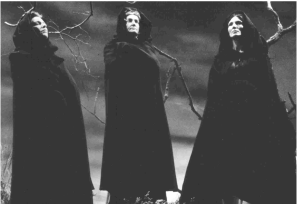
Macduff is in England, out of his reach, but Macbeth declares that he will seize Macduff's castle and "give to the edge o' the sword / His wife, his babes, and all unfortunate souls / That trace him in his line" (4.1.151-153). It's generally agreed that the apparition does indeed represent "the issue of a king," Malcolm, even though Malcolm is a young man, not a "baby."Īt the end of this scene, Macbeth plans an act of senseless cruelty.


When he sees the apparition, Macbeth cries out, "What is this / That rises like the issue of a king, / And wears upon his baby-brow the round / And top of sovereignty?" (4.1.86-89). The third apparition is a " Child crowned, with a tree in his hand" (4.1.86, s.d.). At the end of the play, in his last battle, Macbeth learns that "Macduff was from his mother's womb / Untimely ripp'd" (5.8.15-16). This sounds like it means that no man can harm Macbeth, because every man is born of woman. The second apparition is a " bloody Child" (4.1.76, s.d.), which advises Macbeth to "Be bloody, bold, and resolute laugh to scorn / The power of man, for none of woman born / Shall harm Macbeth" (4.1.81). Later in the same scene, the witches call up apparitions that speak to Macbeth. Some of the ingredients of the witches' stew are almost humorous, but this one is truly horrifying because parents could be - and can still be - so evil that they will kill and mutilate their own children. One of the last ingredients to go into the cauldron is "Finger of birth-strangled babe / Ditch-deliver'd by a drab" (4.1.30-31). As they wait for him, they stir up a disgusting stew of evil. The witches know that Macbeth will return to learn his fate. If it does, and Macbeth shows fear, then it can tell the world that Macbeth is a little doll-baby. "Protest" means "proclaim," and "if trembling I inhabit" means "if I live inside a trembling body." Macbeth is daring the Ghost to come alive and fight. A "desert" doesn't have to have sand in it it's just any deserted place where they could be alone and fight man to man. He says he would not tremble if the Ghost should take the shape of a terrible beast, "Or be alive again, / And dare me to the desert with thy sword / If trembling I inhabit then, protest me / The baby of a girl" (3.4.102-105). When the Ghost of Banquo comes to Macbeth's banquet for the second time, Macbeth shows his courage. She, too, seems to view a baby as a symbol of innocence, but innocence isn't something she values very much. Have pluck'd my nipple from his boneless gums,Īnd dash'd the brains out, had I so sworn as you I would, while it was smiling in my face, How tender 'tis to love the babe that milks me: To shame Macbeth, she calls him a coward, questions his manhood, and tells him that he should be as tough as she is. Later in the scene, Lady Macbeth shames her husband into sticking with the plan to kill Duncan. The "new-born babe" and the "cherubins" apparently represent the innocence of Duncan. This elaborate metaphor suggests that pity for King Duncan will be like that kind of wind that blows so hard that it brings tears to your eyes. "Cherubins" are small angels, portrayed as chubby, naked children we call them "cherubs." And "the sightless couriers of the air" are the winds, imagined as invisible ("sightless") horses.

When Macbeth is thinking about what's going to happen after he has killed King Duncan, he says that "pity, like a naked new-born babe, / Striding the blast, or heaven's cherubins, horsed / Upon the sightless couriers of the air, / Shall blow the horrid deed in every eye, / That tears shall drown the wind" (1.7.21-25). Macbeth's metaphor expresses a common idea of the time: A King cares for his people as a father cares for his children and the people are supposed to act like obedient children. When King Duncan thanks Macbeth for his heroic service in battle, Macbeth replies that "Your highness' part / Is to receive our duties and our duties / Are to your throne and state children and servants" (1.4.23-25).


 0 kommentar(er)
0 kommentar(er)
